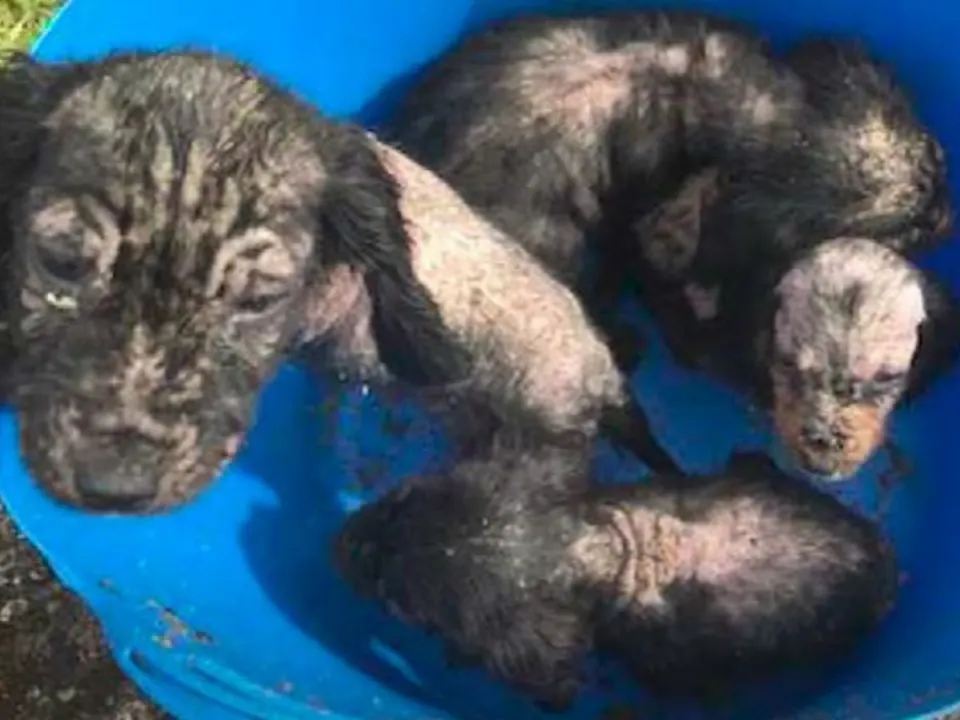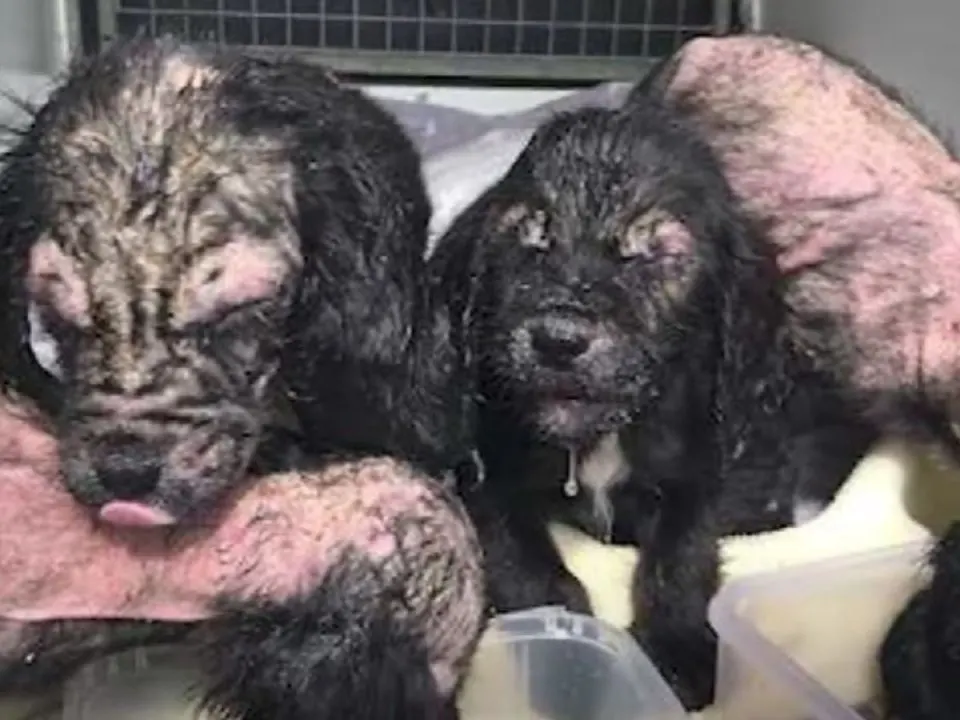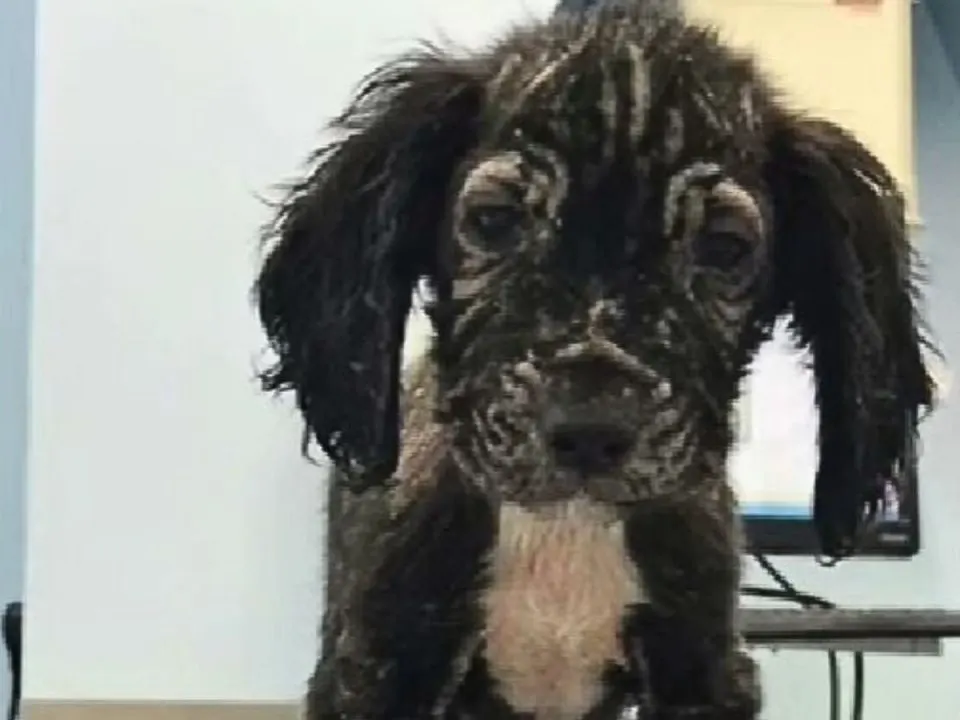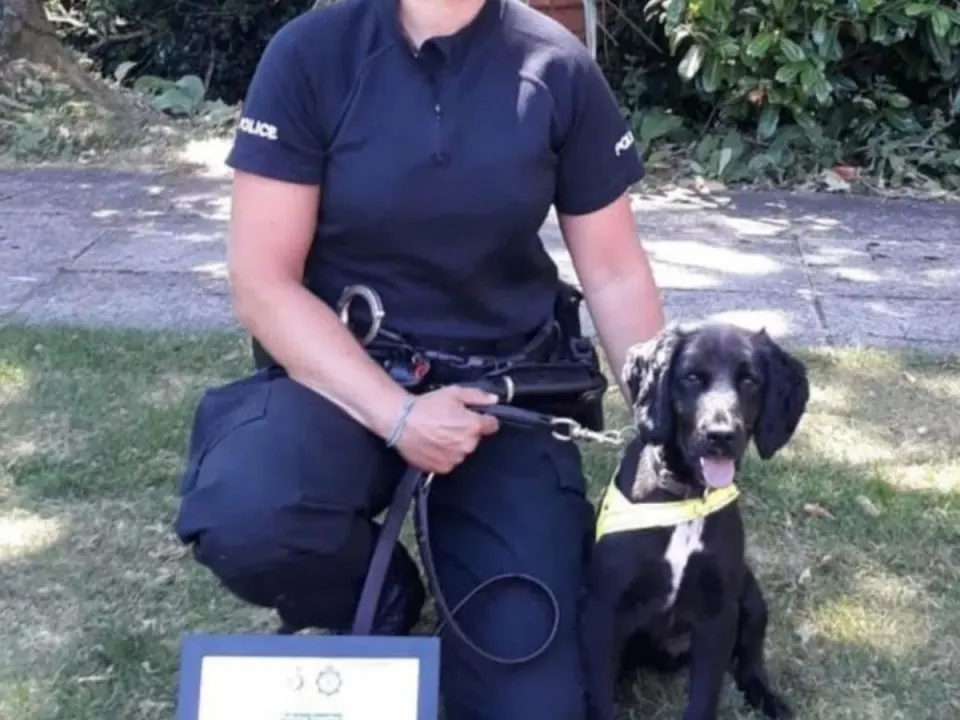It doesn’t happen so often that when you go out to mow the grass in your private garden, you see some unknown bucket in the middle of the road. Surely, nothing would be clear to you and you would not know where it suddenly appeared from.
And, just imagine if that bucket starts moving slowly and you hear crying coming from it. You would surely be in deep shock.
This is exactly what happened to John Johnson, a homeowner who found a shocking situation in his garden. Little did he know that a beautiful story would emerge from everything.
The Bucket Hid An (Un)Pleasant Surprise

When he stepped on the grass, John spotted something unusual near the edge of his yard. A rusty bucket not belonging to the family sat against the backdrop of the lush greenery.
However, the bucket itself was not as surprising to him as its gentle movement, which shocked him. When he came slightly closer to see what it was about, he was speechless.
He just stood over the bucket and stared in amazement. Inside were 4 bald, abandoned puppies whose cries hit straight to the heart.
The bald puppies, with their fragile bodies huddled together, stared back at him with pleading eyes. It was a sight that John could not remain immune to, and he immediately called his family to consult with them on what to do next.
It didn’t take long for them to agree to call professionals for help.
They Transformed Into Beautiful Pups

John called the RSPCA, and when their inspector, Rebecca Timberlake, heard what was going on, she immediately went to the “crime scene”.
Rebecca, who has a soft heart for small puppies, quickly sprung into action. Along with Johnson and his family members who also came, she took the little ones to a nearby vet.
The vets determined they were Cocker Spaniels and at around 6 weeks old.
When it came to the diagnoses, it was grim. An advanced case of scabies, dehydration, and troubling eye problems plagued them.
All of them were heartbroken after hearing the diagnosis because they knew what all these little pups had to go through at the very beginning of their lives.
They were direct victims of irresponsible owners who neglected them, and ultimately, cruelly threw them out on the street.
Fortunately, fate itself took care of them and wanted these good people to find them and help guide them on the right path.
That journey was not at all easy because the treatment was quite strict, but at the same time, necessary. Regular medicated baths and antiviral medication became a lifeline for the poor pups.

All this lasted for a long time, and the Johnsons, who formed a deep bond with them, were constantly waiting for new updates on their health.
And, as they say, “he who waits, he will receive”, one day, they suddenly saw 4 beautiful little boys with big smiles on their faces.
The recently bald, sick little dogs became happy, playful pups whose fur literally shone as a symbol of their new lives.
Three Warm Homes And One Successful Career
John and his family happily agreed to take care of them until they found their happy families. They called them Dustin, El, Lucas, and Mike – after the “Stranger Things” characters.
They were the happiest and most loving puppies they had ever seen. They were also full of positive energy, and Dustin, who was constantly on the move, stood out in particular.
Unfortunately, for them, they could not enjoy their presence for long because soon, they all got their happy endings.
Only Dustin’s path was a little different because his new family couldn’t handle his incredible energy. For this reason, he had to return to his temporary home.
However, his tireless energy and incredible talent for finding things were recognized by a police agency that soon hired him as a police dog.

According to SurreyLive, Dustin, now known in police circles as Badger, became a trained sniffer dog and one of the best cadets in the service. His police career certainly has a bright future.
Against all odds, thanks to their persistence and the people who believed in them, these once bald, sick dogs who were on the verge of survival managed to reach the skies.
They also showed all of us that a once difficult beginning can be a springboard for something much bigger.
If you’ve noticed your furry companion coughing more than usual, you’re not alone. As a seasoned dog enthusiast, you understand that a dog’s cough can raise concerns. It’s not uncommon for our canine friends to experience occasional coughing fits. But when it becomes persistent, it’s essential to pay attention.
You might be wondering what’s causing your dog’s coughing spells. From environmental irritants to underlying health issues, there are various reasons why your dog may be coughing. As we delve deeper into this common canine concern, you’ll gain valuable insights into understanding and addressing your dog’s persistent cough.
Understanding Canine Cough
Identifying the Symptoms
When your furry friend starts coughing, pay attention to the type of cough. A dry, hacking cough may indicate an issue like kennel cough or tracheal collapse. On the other hand, a moist cough can point to heart disease or respiratory infections. Watch for other symptoms like lethargy, difficulty breathing, or loss of appetite that accompany the cough.
When to Be Concerned
It’s essential to observe how long the cough persists. If it lasts for more than a few days, worsens, or is frequent, it’s time for a vet visit. Also, if your dog is coughing up blood, has pale gums, or is struggling to breathe, seek immediate veterinary care. Early detection and treatment can help your canine companion feel better sooner.
Common Causes of Coughing in Dogs
Kennel Cough: The Usual Suspect
Kennel cough, also known as infectious tracheobronchitis, is a highly contagious respiratory disease in dogs. It spreads easily in places where dogs gather, such as boarding facilities, dog parks, and grooming salons. The main symptom is a persistent, dry cough that can sound like your dog is trying to clear his throat. It’s typically not a serious condition but can lead to complications if left untreated.
Heart Disease in Dogs
Heart disease can also cause coughing in dogs. When the heart is not functioning correctly, fluid can build up in the lungs, leading to coughing. This cough is often soft and dry, especially at night or when the dog is lying down. It’s essential to monitor your dog for other signs of heart disease, such as fatigue, difficulty breathing, and reduced exercise tolerance.
Canine Influenza and Other Respiratory Infections
Canine influenza and other respiratory infections can trigger coughing in dogs. Symptoms may include coughing, sneezing, nasal discharge, and fever. These infections are usually spread through close contact with infected dogs. It’s crucial to isolate your dog if you suspect an infection and seek veterinary care promptly.
Allergies and Environmental Irritants
Allergies to pollen, dust, mold, or other environmental irritants can manifest as coughing in dogs. Your dog may also show other signs of allergies, such as itching, sneezing, or watery eyes. Identifying and removing the allergen from your dog’s environment can help alleviate the symptoms. In some cases, your vet may recommend allergy testing to determine the specific triggers.
Remember, persistent or severe coughing in dogs should never be ignored. If your dog’s cough lasts more than a few days, worsens, or is accompanied by other concerning symptoms, consult your veterinarian for proper diagnosis and treatment. Early detection and intervention play a crucial role in maintaining your furry friend’s health and happiness.
Diagnosing the Cough
Veterinary Examination and History
When your dog keeps coughing, it’s essential to schedule a visit to the vet. The vet will conduct a thorough examination to determine the underlying cause. Be prepared to provide your dog’s complete medical history, including any recent changes in behavior or environment.
Diagnostic Tests for Dogs
To pinpoint the reason behind your dog’s persistent cough, the vet may recommend diagnostic tests. These tests can include blood work, x-rays, and even a tracheal wash to gather samples for analysis. Understanding the results of these tests will help the vet tailor the treatment plan for your furry companion.
Remember, timely veterinary evaluation and diagnostic testing are crucial in identifying and addressing the root cause of your dog’s cough.
Treatment Options
Home Care and Remedies
When it comes to helping your furry friend with a cough at home, some simple remedies and care can ease their discomfort. Firstly, ensure your dog is in a calm and comfortable environment to prevent any additional stress. You can also try increasing the humidity in the air by using a humidifier or taking your dog into the bathroom while a hot shower runs to help ease their cough.
Additionally, it’s essential to keep your dog well-hydrated. Make sure they have access to fresh water at all times to prevent their throat from getting dry, which can worsen the cough. Another home remedy you can try is giving your dog honey. Honey has natural soothing properties that can help with coughs. However, it’s crucial to consult your vet before doing so to ensure it’s safe for your specific dog.
Medical Treatments and Interventions
When home remedies are not sufficient to alleviate your dog’s cough, it may be time to consider medical treatments and interventions by a veterinarian. Depending on the cause of the cough, your vet may recommend various treatment options.
If the cough is due to an infection, your vet might prescribe antibiotics to combat the underlying issue. For coughs related to heart problems, medications to manage the condition may be necessary. In cases where allergies are the culprit, antihistamines or other allergy medications could be prescribed.
In more severe cases, your vet may suggest further diagnostic tests, such as chest X-rays or ultrasounds, to get a clearer picture of what’s causing the cough. Based on the results, a tailored treatment plan will be developed to address the specific underlying issue causing your dog’s cough.
Remember, always follow your vet’s recommendations regarding medical treatments, as they are tailored to your dog’s individual needs and health condition. Regular check-ups and follow-up appointments may also be necessary to monitor your dog’s progress and adjust the treatment plan if needed.
Preventing Future Coughs
Vaccinations and Regular Check-Ups
It’s crucial to keep your dog up to date with vaccinations to prevent diseases that can cause coughing. Regular vet check-ups help catch any issues early. Vaccines like Bordetella and influenza can protect your furry friend from contagious illnesses that lead to coughing fits. Remember, prevention is key – so don’t skip those important appointments.
Managing Allergies and Weight
Allergies can trigger coughing in dogs. Keep an eye out for common allergens like pollen or dust, and try to minimize your dog’s exposure. Maintaining a healthy weight is also essential, as excess pounds can put pressure on their respiratory system, leading to coughing. Consult your vet for guidance on managing allergies and keeping your dog at a healthy weight.
Conclusion
So, there you have it – when your furry friend keeps coughing, it’s essential to take action. Recognizing the signs early on and seeking veterinary care promptly can make a world of difference. Remember, diagnosing the underlying cause is key to finding the right treatment. By staying proactive with vaccinations, regular check-ups, and managing allergies, you can help keep those coughs at bay. Your pup’s well-being is top priority, so don’t hesitate to reach out to your vet for guidance on keeping them healthy and happy.
Frequently Asked Questions
What are the common causes of persistent coughing in dogs?
Persistent coughing in dogs can be caused by conditions such as kennel cough, heart disease, allergies, or respiratory infections.
Why is it important to seek veterinary attention for a dog with a persistent cough?
Prompt veterinary attention is crucial to determine the underlying cause of the cough, provide appropriate treatment, and prevent potential complications.
How can a veterinarian diagnose the cause of a dog’s persistent cough?
Veterinarians may diagnose the cause of a dog’s cough through a physical examination, medical history review, and diagnostic tests like blood work and x-rays.
What treatment options are available for dogs with a persistent cough?
Treatment options for dogs with a persistent cough vary based on the underlying cause and may include home care remedies or medical interventions prescribed by the veterinarian.
How can dog owners prevent future episodes of coughing in their pets?
Preventative measures to minimize coughing in dogs include vaccinations, regular veterinary check-ups, managing allergies, and maintaining a healthy weight.
[no_toc]

Hey there, I’m Janet Brooks, a dog-loving student from California. I’m all about helping pups in need, especially those without homes. Me and my awesome friends work together to give shelter and love to stray dogs. Oh, and I also write blogs about dogs to share helpful info.